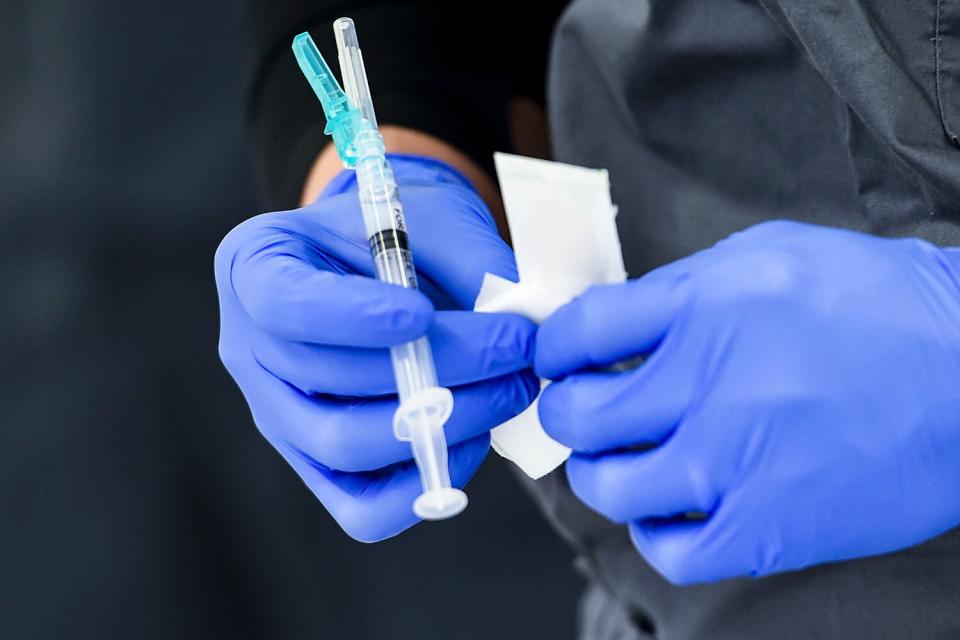White House Unveils Plans to Distribute COVID-19 Vaccine to Children Ages 5-11
COVID-19 is still spreading around the country, and everyone 12 and up is now eligible for vaccination. With pediatric clinical trial results coming in, experts predict that younger children ages 5-11 may get the go-ahead in the coming weeks. This decision is currently under consideration by the Food and Drug Administration (FDA) and Centers for Disease Control and Prevention (CDC), who are hosting independent advisory committee meetings in the coming weeks.
The Biden Administration understands that vaccination is key to stopping the spread of the coronavirus. On October 20, it unveiled plans to distribute the vaccine quickly, conveniently, and equitably to children across the country. The initiatives will be put into place soon after pediatric vaccines are recommended by the FDA and CDC.
"Our planning efforts will mean that we're ready to begin giving shots in arms in the immediate days following a final recommendation," says Sonya Bernstein, a senior policy advisor for the White House. "We know that these steps will be critical in ensuring that we're staying ahead of the virus by keeping kids and families safe."
Keep reading to learn more about the White House's pediatric COVID-19 vaccine initiative.
Making Pediatric Vaccines Accessible
Fully vaccinated people are 10 times less likely to be hospitalized with COVID-19, and they usually have milder symptoms, even with the highly contagious Delta variant spreading across the country. Under the Biden Administration, the U.S. has enough vaccines for everyone between the ages of 5-11 years old—that's about 28 million children.
According to Bernstein, the White House is "mobilizing a comprehensive effort across the public and private sectors that will make kid's vaccines available" in many places—including more than 25,000 pediatric offices and primary care sites, thousands of pharmacies, and more than 100 children's hospitals and health systems. COVID-19 vaccines will also be given at hundreds of schools and trusted community-based locations, Bernstein adds, which makes them accessible for many Americans.
You can partly thank advanced vaccine technology for this increased availability. "The [pediatric] vaccine will have packaging available in smaller configurations, which will make it easier for doctor's offices and smaller providers," says Bernstein. It can be stored up to 10 weeks at standard refrigerator temperature (a huge improvement from earlier vaccines, which needed extremely cold environments) and it will come with kid-friendly supplies, such as smaller needles.
Rest assured that the United States Department of Health and Human Services (HHS) "is working hand-in-hand with states to make sure that this vaccine supply will be available in communities across the country as rapidly as possible, should the FDA authorize and the CDC recommend it," stresses Bernstein.

Ben Hasty/MediaNews Group/Reading Eagle via Getty
Educating Americans About the Vaccine
The White House's program also involves educating families about the vaccine. Parents can "engage with trusted expert voices to get their questions answered and see the benefits of being vaccinated," says Bernstein. Hopefully, this will curb the spread of harmful misinformation and help parents make informed choices.
"Last December, we saw that approximately one-third of adults wanted to get vaccinated and we're now at approximately 79 percent," says Bernstein. "That's because people had questions they wanted answered. They needed ready access to sites and vaccines, and they wanted to see the benefits of being vaccinated. We understand that parents and kids have similar questions and concerns, and that's why we're prepared for addressing that from the get-go."
As part of the education initiative, HHS will recruit trusted messengers (like pediatricians and community leaders) to talk openly about the vaccine. They'll also work with schools, health departments, and national and community organizations to increase vaccine confidence. Finally, HHS will create forums for parents to ask questions, as well as reach out to them directly through the press and social media.
"We know that many parents will go to their own pediatricians. But we want to make sure that parents and kids who don't have a consistent medical provider—or parents who have additional questions—can get those questions answered," says Bernstein.
Reaching Marginalized Individuals
Equity is also essential to the White House's strategy. Many COVID-19 vaccination centers will strive to meet the needs of local communities. That means offering appointments during convenient after-work hours, allowing for walk-ins rather than scheduled appointments, and more.
Bernstein adds that more than 3 million children ages 5 to 11 year olds—including many low-income kids—get their primary care from health centers. "We're working with states and through the federal program to ensure that we're making vaccine supply available to these health centers across the country, '' she says.
The White House's efforts to advance equity will also focus on providing vaccines to the nation's highest-risk kids, such as those with obesity, diabetes, asthma or immunosuppression. "When it comes to these kids, children's hospitals and health systems are trusted expert voices, and we'll be working with them to set up vaccination clinics as one part of our strategy," says Bernstein.
The Bottom Line
At the end of the day, the White House's program should help make the vaccine conveniently accessible to children across the country. "We're doing everything we can to make it as easy as possible, whether parents want to schedule an appointment or drop in," says Bernstein. "We know that it will take time to get everyone vaccinated, but over the immediate days following the CDC and FDA decision [about vaccine approval for kids ages 5 to 11], we know that there will be more opportunities for millions of children and their families."

